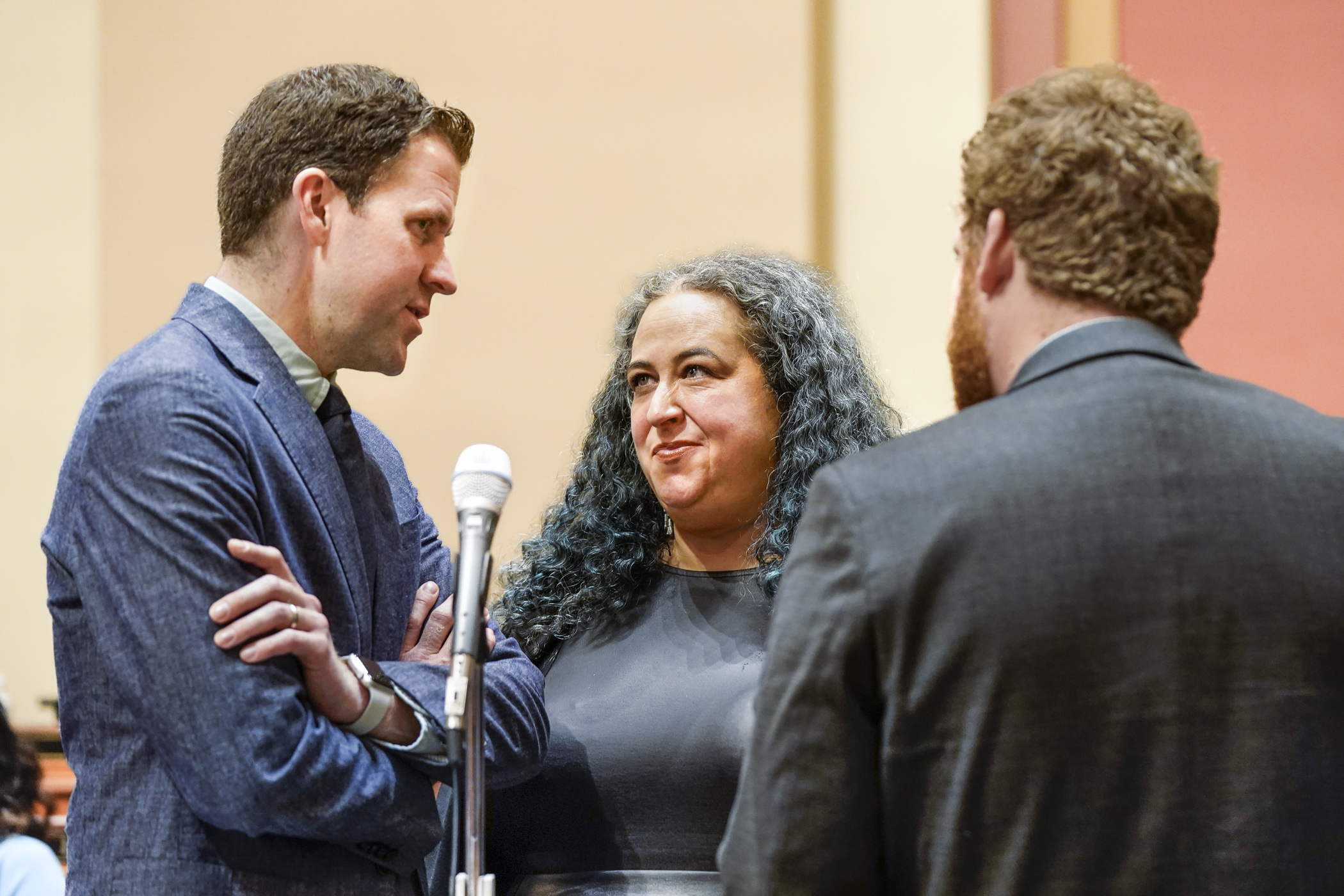House passes tax package that includes rebate checks, $1 billion in new revenues

Is it the largest tax cut in Minnesota history? Or the biggest tax hike the state has ever experienced? Could it be both?
That’s the crux of the debate about the conference committee report on HF1938. The revised tax bill, sponsored by Rep. Aisha Gomez (DFL-Mpls) and Sen. Ann Rest (DFL-New Hope), was approved by conferees Saturday morning before being repassed by the House 69-63 along party lines in the evening. Then the bill was off to spend its Saturday night on the Senate Floor.
The bill includes $3 billion in refunds, aids and credits during the 2024-25 biennium, but also pulls in another $1 billion by increasing taxes on some multinational corporations and individuals who make over $1 million in adjusted gross income or take in over $1 million in investment income.
“We were really focused on who it is who needs help the most in this moment,” Gomez said. “The centerpiece of this bill is the governor’s child tax credit. According to the Center on Poverty and Social Policy at Columbia University, this will cut child poverty by one-third.”
That credit would provide $1,750 per child to households making $35,000 per year, gradually phasing out on incomes up to $96,250, depending upon filing status and number of children.
The bill would earmark $1.13 billion of the state’s surplus toward direct payments to taxpayers of $260 per filer and dependent, if they make $75,000 or less a year, $150,000 for those married filing jointly. And those who receive Social Security benefits would see their state taxes on that income exempt from taxation for those making $100,000 or less and reduced for those making up to $140,000.
Also included is a new renter income tax credit, $300 million in one-time public safety aid, and a one-time 20.6% boost in property tax refunds for homeowners.
A defeated motion to send the report back to the conference committee hinged upon language in the bill that would detail what type of e-pulltab games could be used by charitable organizations.
Rep. Greg Davids (R-Preston) contends the changes would significantly reduce how much charities could raise, while Rep. Zack Stephenson (DFL-Coon Rapids) counters the bill’s reduction in lawful gambling tax rates would increase the money going to charities.
As for raising revenue, the bill would bring the state into conformity on collecting taxes on global intangible low-tax income from companies to the tune of $430.7 million in the next biennium, while a cap on the amount of itemized deductions for those making over $1 million is projected to bring in another $354.3 million. A reduced deduction for dividends received would bring in another $128.1 million.
[MORE: See more of what’s in the bill and view the spreadsheet]
“If you tax something more, you will get less of it,” Davids said. “If you tax income more, you’ll have less of it.”
But Rep. Dave Lislegard (DFL-Aurora) said that he’s proud of the bill. “The tax increases in this bill affect the few and benefit the masses.”
“We’re giving credits to low-income families, but then pulling money out of their other pocket with increases in fees for deliveries from Amazon and a gas tax,” said Rep. Peggy Bennett (R-Albert Lea), referring to the transportation bill that’s expected to be debated on the House Floor Sunday.
Rep. Kristin Robbins (R-Maple Grove) contends that the bill’s business provisions would make the state’s corporate tax rate the highest in the country and make the state uncompetitive. But Rep. Michael Howard (DFL-Richfield) feels the bill is heading the state in the right direction.
“What should concern all of us is widening income inequality,” he said. “That threatens our prosperity as Minnesotans. Since the pandemic, the income of the wealthiest earners has grown by more than 117%, while corporate profits have soared.”
“This is an incredible bill for property tax cuts,” said Rep. Cheryl Youakim (DFL-Hopkins). “And local government aid [which would increase by $80 million in the next biennium] will help our rural communities tremendously.”
The bill also would pay off the bonds for construction of U.S. Bank Stadium and approve the ability of 36 cities or counties to place local option sales tax proposals on their ballots. It would also institute a two-year moratorium on new referenda for such taxes.
Related Articles
Search Session Daily
Advanced Search OptionsPriority Dailies
Speaker Emerita Melissa Hortman, husband killed in attack
By HPIS Staff House Speaker Emerita Melissa Hortman (DFL-Brooklyn Park) and her husband, Mark, were fatally shot in their home early Saturday morning.
Gov. Tim Walz announced the news dur...
House Speaker Emerita Melissa Hortman (DFL-Brooklyn Park) and her husband, Mark, were fatally shot in their home early Saturday morning.
Gov. Tim Walz announced the news dur...
Lawmakers deliver budget bills to governor's desk in one-day special session
By Mike Cook About that talk of needing all 21 hours left in a legislative day to complete a special session?
House members were more than up to the challenge Monday. Beginning at 10 a.m...
About that talk of needing all 21 hours left in a legislative day to complete a special session?
House members were more than up to the challenge Monday. Beginning at 10 a.m...